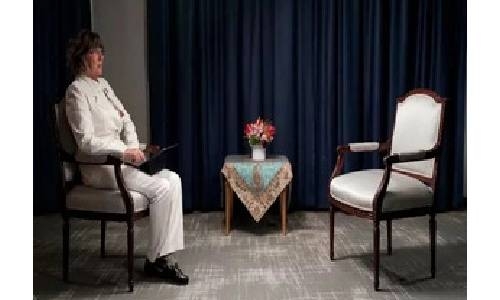US journalist denied interview with Iran President for not wearing hijab
Agencies | Tehran
The Daily Tribune – www.newsofbahrain.com
Iran's President Ebrahim Raisi on Thursday cancelled the scheduled interview with the US journalist as she refused to wear a hijab for the interaction.
This comes amid massive protests in Iran that escalated after the death of a woman in police custody for breaking hijab laws.
An interview of Iranian President Ebrahim Raisi with CNN's Chief international anchor Christiane Amanpour was abruptly cancelled after the journalist declined to wear the Hijab.
Taking to Twitter, Amanpour said that she was suggested to wear the headscarf but after her denial, the interview got cancelled.
In a series of tweets, the anchor said that she planned to discuss the demonstrations, which are surging in Iran, including numerous incidents where women are burning their hijabs to protest over the death of Mahsa Amini in police custody, among other topics.
"This was going to be President Raisi's first ever interview on US soil, during his visit to NY for UNGA. After weeks of planning and eight hours of setting up translation equipment, lights and cameras, we were ready. But no sign of President Raisi," Amanpour said in a tweet.
She waited for 40 minutes for the President to come for the interview but was cancelled.
"40 minutes after the interview had been due to start, an aide came over. The president, he said, was suggesting I wear a headscarf, because it's the holy months of Muharram and Safar. I politely declined. We are in New York, where there is no law or tradition regarding headscarves. I pointed out that no previous Iranian president has required this when I have interviewed them outside Iran," Amanpour said as she posted a picture of herself, without a hijab, sitting in front of an empty chair.
After Amanpour repeatedly declined to wear the Hijab, the interview, at the end, got cancelled.
"And so we walked away. The interview didn't happen. As protests continue in Iran and people are being killed, it would have been an important moment to speak with President Raisi," she tweeted.
The ongoing protests in Iran have intensified on Wednesday, demonstrators hurled stones over security forces.
The protestors burned vehicles and chanted anti-government slogans as the oppression against strict dress codes for women continued in Iran.
Citing the Iranian state media, CBS reported that police used tear gas and arrested to disperse crowds of up to 1,000 people on Wednesday as street rallies spread to 15 cities.
Meanwhile, on Thursday, UN experts strongly condemned the death of 22-year-old Mahsa Amini.
In a press statement, the UN Human Rights Office said the experts also denounced the violence directed against peaceful protesters and human rights defenders demanding accountability for Amini's death in cities across the country by Iranian security forces.
They urged the Iranian authorities to avoid further unnecessary violence and to immediately stop the use of lethal force in policing peaceful assemblies.
"We are shocked and deeply saddened by the death of Amini. She is another victim of Iran's sustained repression and systematic discrimination against women and the imposition of discriminatory dress codes that deprive women of bodily autonomy and the freedoms of opinion, expression and belief," the experts said.
Mahsa Amini, 22, was on a visit to Tehran with her family when she was detained by the specialist police unit. During detention after some time, she suffered a heart attack and was immediately taken to hospital with the cooperation of the emergency services.
"Unfortunately, she died and her body was transferred to the medical examiner's office," state television said on Friday. The announcement came a day after Tehran police confirmed Amini had been detained with other women for "instruction" about the rules.
Following the death of 22-year-old- Mahsa Amini, several women protesters cut their hair and burnt hijabs to protest against the mandatory veiling of women.
Following the incident that sparked fury on social media, Iranian President Ebrahim Raisi ordered the interior minister to open an inquiry into the case.
Amini's death comes amid growing controversy both inside and outside Iran over the conduct of the morality police, known formally as the Gasht-e Ershad (Guidance Patrol). The mandatory dress code, which applies to all nationalities and religions, not just Iranian Muslims, requires women to conceal their hair and neck with a headscarf.
Over the decades, women have increasingly pushed back, particularly in the big cities, wearing their headscarves far back on their headscarves far back on their heads to reveal their hair.
Related Posts

